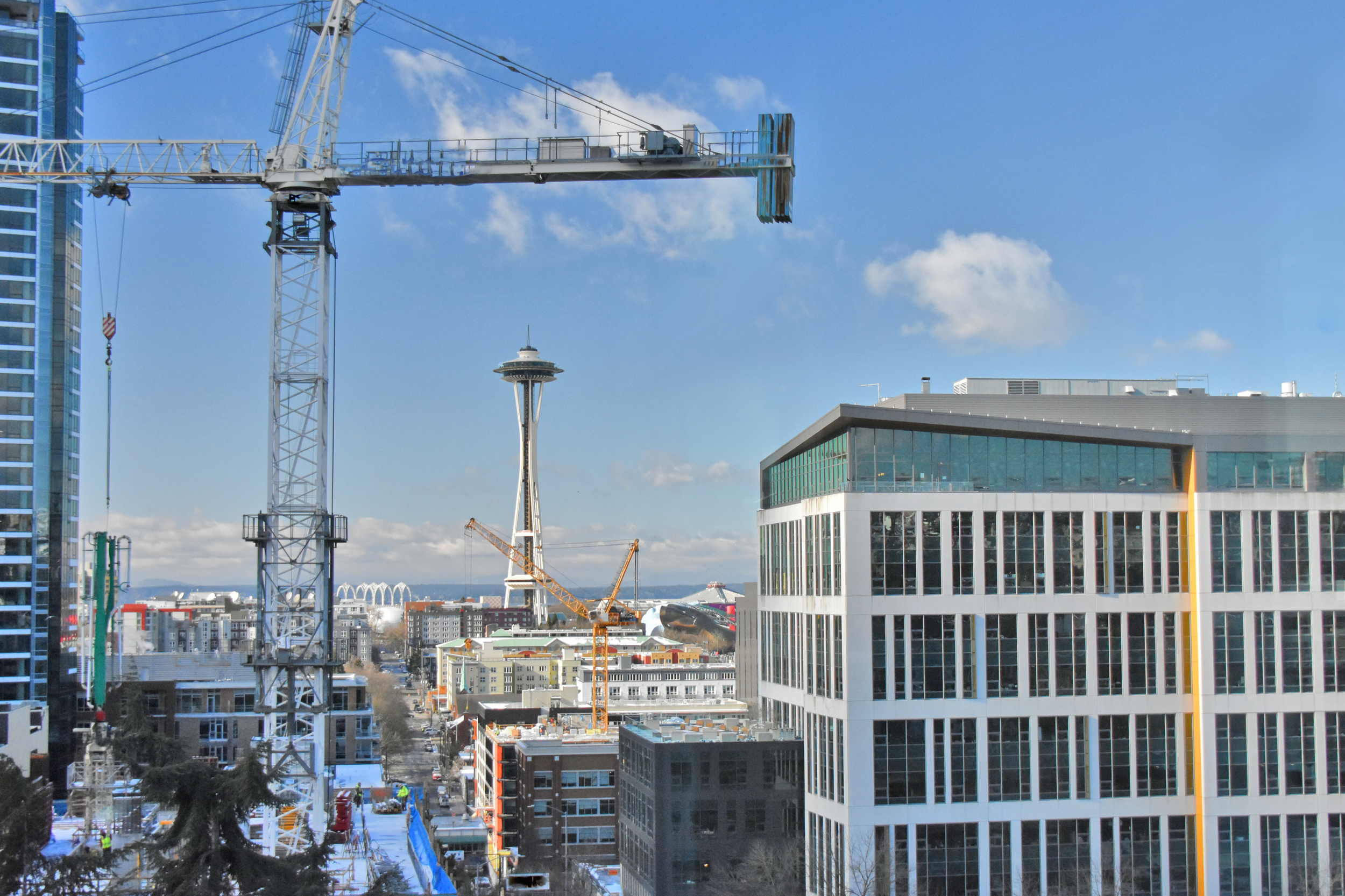In response to a housing shortage that has skyrocketed prices in the past several decades, the Seattle City Council has recently taken several steps to make downtown housing development easier.
Their first step was an 8-1 vote to exempt residential projects in downtown Seattle from the current “design review” process. This lengthy procedure allows the public to weigh in on how new developments could impact their neighborhood and to ask for changes. When developers request permits, they often ask for exemptions, or “departures,” from certain rules. For example, they may ask to build higher or closer to the property line than regulations allow. Typically, the public counters by asking something of the developers, such as a mural or public open space. The back-and-forth, while giving the public a voice, can also add expensive delays to the project, which ultimately leads developers to seek higher rents or sales prices.
The new bill, which will become law a month after the mayor signs it, will grant city permit technicians to negotiate directly with downtown developers on the public’s behalf, streamlining the process and eliminating pricey delays. Other cities across the U.S. are similarly reforming design review processes to speed up the necessary increase in housing supply.
In a separate move to encourage the development of downtown housing, the City Council voted unanimously to make it easier to build micro-apartments. As of a decade ago, these spaces needed to be a minimum of 220 square feet and have at least two sinks per apartment.
New state law requires cities to allow micro-apartments in any urban growth area by the end of 2025. With this type of living space back in discussion at City Hall, Mayor Harrell worked quickly to undo restrictions that could hinder development of this unsubsidized, market-rate solution to the affordable housing crisis.
The new city law will allow micro-apartments to be developed in any zone that allows multi-family housing, with the possibility of expansion into single-family zones in the next two years, pending changes to the land use code.
These co-living, or congregate housing, units can now be as small as 70 square feet, the minimum allowable size for a habitable living space. The council-approved bill is hoped to encourage micro-apartment construction downtown, and in low-rise zones, which currently include Capitol Hill, Ballard, Fremont and Columbia City.
With its recent moves to ease the challenges of developing downtown housing, the City Council is recognizing the city’s need to have more permanent residents in the city’s core, in part to offset the adverse economic impacts of remote work. Having fewer workers downtown means less business for local stores and restaurants, but more residents in the area would likely counteract this and lead to a healthier downtown economy.
This post was based on information found on KUOW and Puget Sound Business Journal.i



